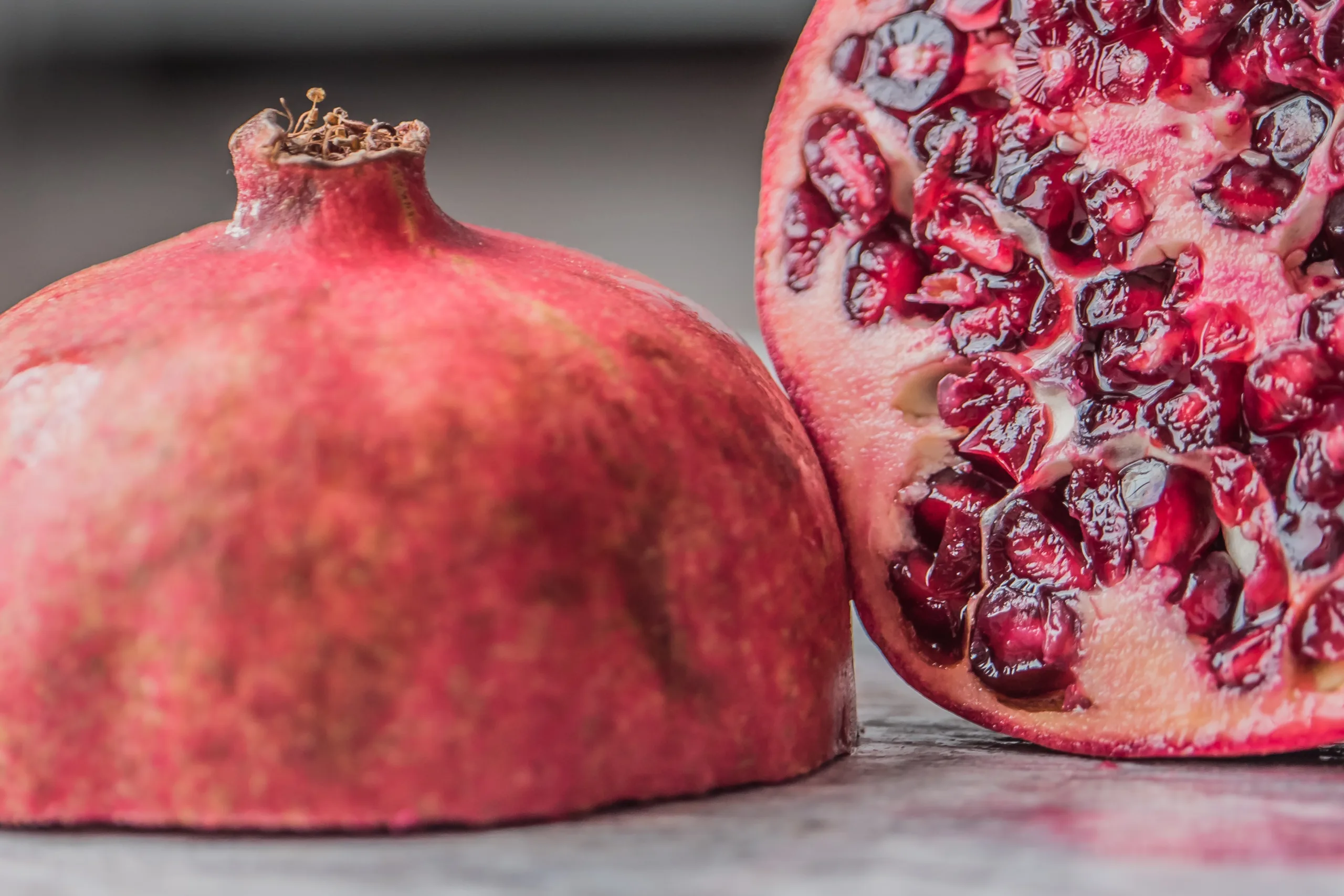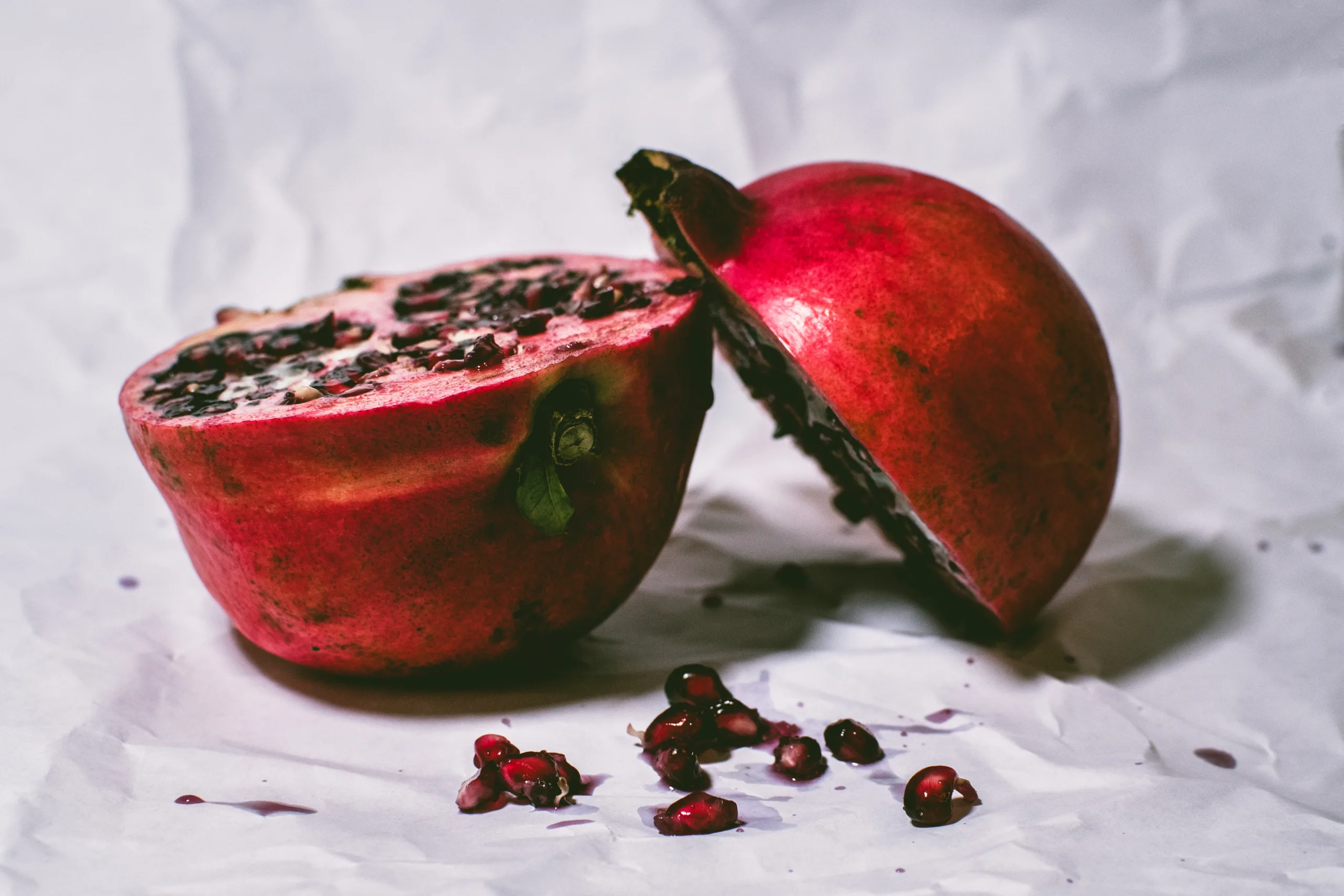Pomegranate juice is a delicious and refreshing beverage that can be enjoyed by many. But if you have IBS, you may be wondering if this juice is low FODMAP friendly.
People with IBS often experience uncomfortable symptoms such as bloating, stomach cramps and diarrhea when they consume high FODMAP foods. Knowing which foods to avoid and which foods are safe to eat can help to reduce these symptoms and improve overall digestive health.
In this article, we will discuss whether or not pomegranate juice is low FODMAP friendly and provide tips on how to enjoy it in a way that won’t trigger your IBS symptoms.
Yes, pomegranate juice is low FODMAP. It is suitable for those following a low FODMAP diet as it does not contain any high FODMAP ingredients.
Benefits of Pomegranate Juice for IBS
Pomegranate juice is known to be a great natural remedy for irritable bowel syndrome (IBS). It can help reduce symptoms such as abdominal pain, bloating, constipation, and diarrhea. Pomegranate juice has anti-inflammatory properties and is high in antioxidants which help to reduce inflammation in the gastrointestinal tract. The high fiber content of pomegranate juice may also be beneficial in helping to reduce symptoms associated with IBS. Additionally, pomegranate juice contains prebiotics which can promote the growth of beneficial bacteria in the gut. This can help improve digestion and reduce inflammation.
Pomegranate juice also contains polyphenols which are known to have anti-diarrheal effects on the body. This helps to reduce loose stools associated with IBS and can provide relief from uncomfortable symptoms. Additionally, pomegranate juice is a source of electrolytes which are important for maintaining hydration levels and helping the body absorb water more efficiently. This can be beneficial for those suffering from dehydration caused by diarrhea.
In addition to its many health benefits, pomegranate juice has a pleasant taste that makes it enjoyable to drink. It is also low in sugar compared to other juices making it a good alternative if you’re trying to maintain your blood sugar levels or watch your calorie intake. For people with IBS, drinking pomegranate juice regularly may help reduce uncomfortable symptoms and improve overall digestive health.
How Can Pomegranate Juice Help Those With IBS?
Pomegranate juice has been used for centuries to help treat a variety of ailments, including Irritable Bowel Syndrome (IBS). Studies have shown that pomegranate juice, when taken in moderation, can reduce the symptoms of IBS. It is thought that the antioxidants in pomegranate juice help reduce inflammation and improve digestion, thus alleviating symptoms. Additionally, pomegranate juice contains high levels of fiber, which can help regulate bowel movements and reduce constipation.
Click here to preview your posts with PRO themes ››
Pomegranate juice also has prebiotic properties, which makes it beneficial for those with IBS. Prebiotics are essential for the growth of beneficial bacteria in the gut and can help regulate digestion and improve nutrient absorption. This can be especially helpful for those who suffer from chronic diarrhea. Studies have also shown that prebiotics may help to decrease abdominal pain associated with IBS.
Finally, pomegranate juice is a great source of polyphenols which have been found to be beneficial for reducing inflammation in the gut. Polyphenols are compounds found in plants and fruits that have powerful anti-inflammatory properties. These properties can help reduce inflammation associated with IBS and may even reduce risk factors for developing other digestive diseases such as Crohn’s disease and ulcerative colitis.
In conclusion, pomegranate juice can be a great way to manage the symptoms of IBS. The antioxidants, fiber content, prebiotics, and polyphenols all work together to reduce inflammation and improve digestion which can lead to an overall reduction in symptoms associated with IBS.
Types of Pomegranate Juice
Pomegranate juice is a delicious and nutritious beverage that can be enjoyed by people with dietary restrictions. It’s important to understand which types of pomegranate juice are low FODMAP, as consuming too much FODMAPs can lead to digestive discomfort. Thankfully, there are several types of pomegranate juice that are low in FODMAPs and can be enjoyed without worry.
The most common type of pomegranate juice that is low in FODMAPs is 100% pure unsweetened pomegranate juice. This type of juice doesn’t contain any added sugars or flavors, making it ideal for those on a low-FODMAP diet. Additionally, some brands offer light versions of their pomegranate juices that contain fewer FODMAPs than the original version. It’s important to read the labels carefully when choosing these types of juices, as some may still contain added sugars or flavors that can increase FODMAP levels.
Another type of low-FODMAP pomegranate juice is concentrated or frozen pomegranate juice. These juices have been processed to remove some of the naturally occurring sugars, making them lower in FODMAPs than other types of pomegranate juices. However, they may still contain additives such as preservatives or sweeteners, so it’s important to read the label carefully before purchasing them.
Finally, some brands offer sugar-free varieties of their regular pomegranate juices. These are made using artificial sweeteners instead of sugar and can be a great option for those looking for a lower-FODMAP alternative to regular pomegranate juice. Again, it’s important to read the label carefully before purchasing any sugar-free versions to ensure they don’t contain any other ingredients that could increase your FODMAP levels.
Is There a Difference Between Fresh and Store-bought Pomegranate Juice?
Pomegranate juice is a popular beverage with many health benefits. But when it comes to the difference between fresh and store-bought pomegranate juice, many people are left wondering what the best choice is.
The biggest difference between fresh and store-bought pomegranate juice is in the nutritional value. Fresh pomegranate juice retains more of its natural vitamins and minerals than store-bought varieties. It also contains higher levels of antioxidants, which can help reduce inflammation and improve heart health. However, fresh juice can be difficult to make at home due to its tough outer skin.
Click here to preview your posts with PRO themes ››
Store-bought pomegranate juice is usually made from concentrate, meaning that much of the nutrient content has been removed during processing. As a result, it may not be as nutritious as fresh pomegranate juice. However, store-bought options tend to be more affordable than their fresh counterparts and offer convenience for those who don’t have time or access to make their own juice.
Another key difference between fresh and store-bought pomegranate juice is in the taste. Fresh juices tend to have a richer flavor than concentrate varieties, which can taste more acidic or artificial due to added preservatives. Additionally, some brands of store-bought pomegranate juices use sweeteners or other artificial flavorings which can change the overall taste of the beverage.
Ultimately, when deciding between fresh and store-bought pomegranate juice, it’s important to consider both nutritional value and flavor preferences. While fresh juices may contain higher levels of vitamins and minerals, they can also be more expensive and time consuming to prepare at home. Store-bought options are typically less expensive and more convenient but may lack some of the nutrients found in freshly made juices.

Making Your Own Low FODMAP Pomegranate Juice
Pomegranate juice is a tasty and refreshing beverage that can be enjoyed on its own or incorporated into other drinks. But for those following a low FODMAP diet, it can be difficult to find a store-bought pomegranate juice that is low in FODMAPs. Fortunately, making your own low FODMAP pomegranate juice at home is relatively simple and can provide you with a delicious option for staying within your dietary restrictions.
The first step in making your own low FODMAP pomegranate juice is to purchase the right type of pomegranates. Look for large, firm fruits that feel heavy for their size. Avoid any that are overly soft or have any signs of mold or rot. Once you have selected the right fruit, remove the seeds from the pith and discard any white parts of the fruit as these contain high levels of FODMAPs.
Once you’ve separated out the seeds, rinse them off and place them in a blender or food processor along with 1 cup of water. Blend until smooth and then pour the mixture through a strainer or cheesecloth to remove any solids. This will leave you with a fresh and delicious low FODMAP pomegranate juice!
If you would like to sweeten it up, try adding some honey, agave nectar, or monk fruit extract to taste before serving over ice. You can also add in other juices like orange or cranberry if desired – just be sure to read the label beforehand to ensure they are also low in FODMAPs.
Click here to preview your posts with PRO themes ››
Making your own low FODMAP pomegranate juice at home is an easy way to enjoy this delicious beverage without having to worry about added sugar or excess FODMAPs. Enjoy!
Alternatives to Pomegranate Juice if Not Low FODMAP
If pomegranate juice isn’t low FODMAP, there are still plenty of delicious beverage options available. Cranberry juice is a great alternative as it is rich in antioxidants and can help reduce inflammation. Apple juice is another great option as it is high in vitamins and minerals, and can be easily blended into smoothies or used as a base for cocktails. Orange juice is also a great choice for its vitamin C content, and can be used to sweeten up salad dressings or marinades. Other alternatives include grape juice, peach nectar, or even sparkling water with a splash of lime or lemon.
If you’re looking for something with a bit more flavor, consider coconut water or freshly-squeezed juices such as carrot, celery, beetroot or cucumber. Coconut water is particularly hydrating and contains electrolytes that help replenish the body after exercise. For a more plant-based option, almond milk can be used in smoothies or added to coffee for an extra creamy texture. Soy milk and oat milk are also good alternatives that contain less sugar than cow’s milk but still provide calcium and protein. Finally, herbal teas such as chamomile, peppermint and ginger are excellent options that are naturally caffeine free.
What Foods Should I Avoid If I’m Following a Low FODMAP Diet and Have IBS?
If you are following a low FODMAP diet to manage your Irritable Bowel Syndrome (IBS), there are some foods that you should avoid. High FODMAP foods include fruits, vegetables, grains, legumes, dairy products, and certain sweeteners and additives. Fruits such as apples, pears, mangos, honeydews, watermelons, and dried fruits such as apricots and dates should be avoided. Vegetables such as garlic, onion, cauliflower, mushrooms, leeks and artichokes should also be avoided. Grains such as wheat products like breads and pastas are best avoided. Legumes such as black beans, chickpeas, lentils and soybeans should also be avoided. Some dairy products like milk from cows or goats can cause digestive issues in those with IBS so these should also be avoided on a low FODMAP diet. Sweeteners like honey and agave syrup as well as additives like fructose or high-fructose corn syrup can cause digestive issues so these should be avoided too.
By following a low FODMAP diet for your IBS you can help reduce symptoms of bloating, gas or abdominal pain. It is important to speak to your doctor or nutritionist before starting any new diet plan to make sure it is right for you.

Conclusion
Pomegranate juice is generally considered low FODMAP and suitable for people following the low FODMAP diet. It is a great source of vitamin C and other antioxidants, and can be consumed in moderation as part of a balanced diet, even for those with IBS. However, it is important to note that some people may experience digestive discomfort when consuming pomegranate juice. If this occurs, it is best to avoid it until further testing can be done.
In conclusion, pomegranate juice can be enjoyed as part of a balanced diet, even by those with IBS. However, it should be consumed in moderation and monitored for any additional digestive discomfort that may occur.

